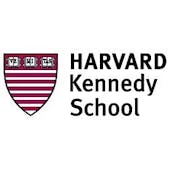Calder Walton is Assistant Director of the Belfer Center's Applied History Project and Intelligence Project. His research is broadly concerned with intelligence, history, grand strategy, and international relations. His research has a particular focus on policy-relevant historical lessons for governments and intelligence communities today.
Calder is finishing a book, Spies. The Hundred Year Intelligence War between East and West, to be published by Simon & Schuster and Little Brown in 2023. His research, and commentary, about national security issues frequently appear in major news and broadcast outlets on both sides of the Atlantic.
Calder is also general editor of the multi-volume Cambridge History of Espionage and Intelligence to be published by Cambridge University Press. Over three volumes, with ninety chapters by leading scholars, this project will be a landmark study of intelligence, exploring its use and abuse in statecraft and warfare from the ancient world to the present day.
Calder's research builds on his first (award-winning) book, Empire of Secrets. British Intelligence, the Cold War and the Twilight of Empire (Harper-Press 2013). While pursuing a Ph.D. in History at Trinity College, Cambridge, England, and then a Junior Research Fellowship also at Cambridge University, Calder was a lead researcher on Professor Christopher Andrew's unprecedented official history of the British Security Service (MI5), Defend the Realm (2009). This research position gave Calder, for six years, privileged access to the archives of MI5, the world's longest-running security intelligence agency. As well as his research on intelligence history, Calder is also an English-qualified Barrister (attorney). He lives in Cambridge, Massachusetts, with his wife and young son, who each day teaches him more about skulduggery than anything else.
Experience
-
–presentAssistant Director, Applied History Project and Intelligence Project, Harvard Kennedy School



